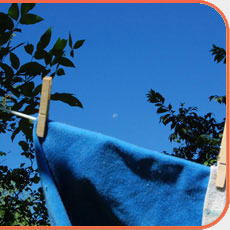
Plenty of clean water for everyday use is one of the benefits of living in Mason. Photo by Sarah Smith
In the early 1990’s, the City of Mason began exploring options for obtaining additional supplies of water. Studies had projected that the Shaker Creek Aquifer, the city’s only water source, was not large enough to provide water to meet the maximum demands that would be placed upon the system by the year 2001. The most cost effective method for obtaining additional water proved to be purchasing additional water from the City of Cincinnati’s Water Works. In 1999, Mason began purchasing up to 5 million gallons of water each day.
In 2000, once again recognizing a growing need for additional water in the city, staff began reviewing how to address Council’s concerns with the city’s long-term water supply and escalating utility costs for residents. Once again, it was determined that the best solution was to work with Greater Cincinnati Water Works (GCWW). In a dramatic and positive step for the future supply of water for Mason’s residents, Mason City Council approved a 30-year contract that transferred all water operations to GCWW.
Major benefits of the city’s contract with GCWW included the following:
- GCWW reduced rates by 7% from Mason’s previous water rates.
- If Mason would have chosen not to contract with GCWW to provide water, a rate analysis indicated that Mason would have had to increase rates approximately 30% in 2002 in order to ensure adequate debt service coverage for the necessary capital improvements.
- GCWW agreed to $30 million in capital improvements to the water system, $4 million more than Mason’s proposed $26 million through 2020.
- GCWW’s proposal included adding softening capabilities to the water treatment plant. Implementation was to begin in 2004 and be completed by the end of 2006. In practice, implementation was completed when GCWW decommissioned the city’s old water treatment plant and began providing all customers with softer water from GCWW’s Miller Treatment Plant in 2005.
- GCWW’s proposal included converting Mason (as well as other customers in their service area) to automated meter reading, beginning in 2003, to allow resident’s meters to be read in a more timely manner. The regular readings reduce fluctuations in bills due to uneven usage. The process was completed in 2011.
